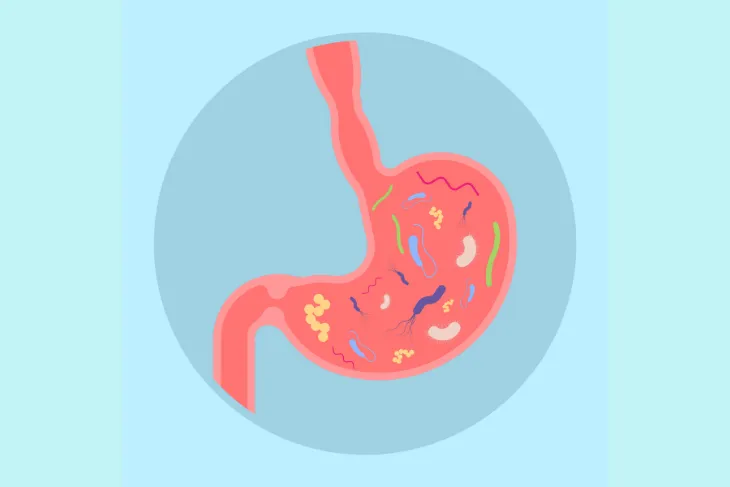The proper medical name for it is Clostridioides difficile (once called Clostridium difficile). But you may have heard about it as its simplified name: C. diff (or C. difficile.) Every year, it infects almost half a million Americans. While it can cause serious illness, it is also responsible for about 15,000 fatalities per year, adds the Centers for Disease Control and Prevention (CDC).
While C. diff can affect people of all ages, it is especially dangerous among seniors in nursing homes. However, there are effective ways to manage the illness, ranging from taking doctor-prescribed antibiotics to ensuring proper hydration. Here’s everything you should know about C. diff…
What Exactly Is C. Diff?
According to Healthline, C. diff is an infectious bacterium that results in a condition called Clostridium difficile colitis. You might recognize colitis as an inflammatory disorder of the colon, and you’d be right.
The colitis resulting from C. diff can be moderate to severe and have a range of symptoms including abdominal pain, fever, and more, which we’ll get into more soon.
How Does It Spread?
The most common way it’s spread is by coming into contact with someone who has the bacteria on their skin. For example, a nurse may be taking care of a patient with C. diff and if they don’t clean their hands properly, they can spread it to other people and the germs can also spread to everything they touch. You can also get C. diff by touching infected surfaces followed by touching your mouth.
The most effective way to prevent the spread of C. diff is to always wash your hands thoroughly with soap and water. The CDC also says it’s important to remember, “you can come in contact with C. diff germs—and even carry them on, or in, your body—and not get sick. But that doesn’t mean you can’t infect others.”
What Are the Symptoms?
The Mayo Clinic lists a long list of possible symptoms that are associated with C. diff infections. It notes that some people may have it and not even know it.
However, for “mild to moderate” cases, the patient may have diarrhea three times daily (lasting for 2-days or longer), the source explains. There might also be some “mild” abdominal cramping.
Severe Symptoms
For more severe cases, patients may experience dehydration and need to be hospitalized due to more frequent bouts of diarrhea. In addition, there could be blood in the stool from inflammation.
Other serious symptoms include severe abdominal pain/swelling, nausea, weight loss, fever, loss of appetite, kidney failure, and increased white blood cell count.
Possible Complications
Aside from the other issues that can come with C. diff, there are others of importance to mention. For example, Healthline explains that in some serious cases a patient could develop a “toxic megacolon”, which causes an enlarged colon that could rupture. Bowel perforation is also a risk either from the infection or from the enlarged colon, the source adds.
Meanwhile, C. diff can affect the kidneys negatively due to rapid dehydration. It notes that the related acute kidney injury can carry its own complications, ranging from fatigue and hand tremors to seizures. Sepsis is also a possibility, which can be fatal.
Risk Factors for C. Diff
The CDC explains that although C. diff can come “from the environment,” it also can occur as a result of taking antibiotics, as we mentioned. In fact, the source says most cases of C. diff occur during or shortly after antibiotic therapy. You’re seven to 10 times more likely to get C. diff in this scenario, the source adds.
However, there are other major risk factors. They include being 65-years or older, recently staying in a hospital or nursing home, or having a compromised immune system. That could be from those taking immunosuppressive drugs, having cancer, or HIV/AIDS, the source explains.
When to See a Doctor
The signs that you should make an appointment with your doctor include three or more watery stools per day, with symptoms lasting for 2-days or more, explains the Mayo Clinic.
In addition, the doctor should be consulted if there’s a “new” fever, bad pain in the abdomen, or blood in the stool. While certain antibiotics are often prescribed as a treatment, antibiotic therapy can sometimes lead to C. diff infections in the first place by killing off healthy bacteria in the gut, the source warns.
How It’s Diagnosed
Several conditions might mimic the symptoms of a C. diff infection. However, Healthline explains that a doctor will first ask you questions about what you’re experiencing along with your medical history.
They will likely follow this up by ordering a stool sample to test it for the presence of C. diff and toxins, adds the source. In some cases, there might be a sigmoidoscopy procedure that involves a “long, thin device” that is inserted into the colon for a closer look and to identify inflammation.
Treatment: Antibiotics
Healthline explains that the primary course of treatment is antibiotics: namely fidaxomicin (Dificid), vancomycin (Firvanq), and metronidazole (Flagyl). Note: these are not the same antibiotics that often lead to C. diff.
The source explains metronidazole oral treatment is a less effective treatment but may be used when the others aren’t available. In some cases, intravenous antibiotics may be required.
Treatment: Surgery
In a recurrent case of the infection, the doctor might ask for a fecal microbiota transplant that has shown some promise in ulcerative colitis patients.
In some rare cases, colon surgery may be required. The source stresses the importance of drinking water during recovery, as diarrhea is a risk factor for dehydration.
Can You Get C. Diff Twice?
According to the CDC, one in six patients who have had a C. diff infection will get symptoms again in the following 2 to 8-weeks. It can be the same infection roaring back, or from another contact with C. diff bacterium, adds the source.
The source lists ways to prevent further infections. They include not taking unnecessary antibiotics (this may require a conversation with your doctor/dentist for alternatives, and to help with future prescriptions), as well as good hand hygiene involving soap and water during each trip to the bathroom and before eating.
What’s the Outlook?
For most patients, the right antibiotics are enough to do the trick, according to the Cleveland Clinic. It notes that your fever will usually subside within 2-days, with diarrhea stopping after 2 to 4-days. It notes that symptoms can return in up to 20-percent of patients within a week or two, and to speak up about it.
If you’ve been in the hospital, the diarrhea is often under control by then so you can return to a normal routine (as there’s less risk of transmission). The source also advises, continue taking any related medications exactly as prescribed and to keep surfaces at home clean with disinfectants to reduce the chances of spreading C. diff.















